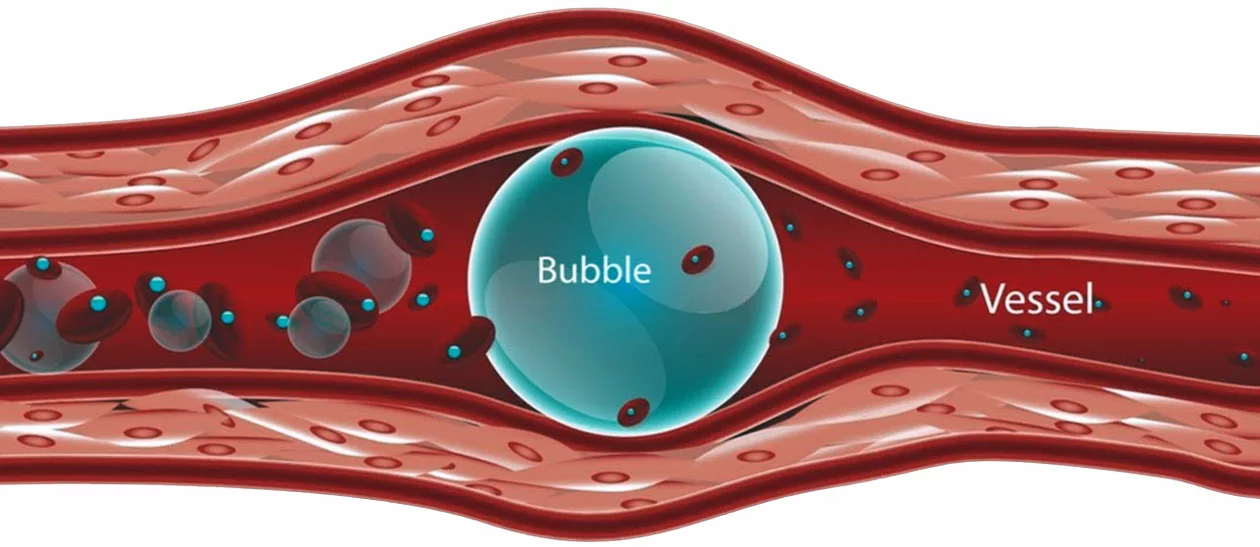Scuba diving is an exhilarating activity that allows us to explore the wonders of the underwater world. However, it is essential to understand the potential risks associated with diving and how they can impact our overall health. One such risk is flying after diving. In this article, we will explore why it is crucial to avoid flying immediately after a scuba dive.
Flying After Diving
Flying to countries on the other side of the world has become extremely convenient and affordable. This is an undeniable advantage. However, as a diving enthusiast, it is important to be aware of certain factors that can affect the safety and comfort of your dives. The most important aspect is to understand why you need to wait after a dive before you hop on a plane.
The Effects of Scuba Diving on the Body
When we go scuba diving, our bodies are exposed to increased pressure as we descend into the depths of the ocean. Underwater, the pressure surrounding us is much greater than at the surface. This is the kind of basic physics that you learn already on your first diving course. The consequence of exposure to higher pressure is the gradual dissolution of nitrogen, which is part of the air, in our tissues.
The longer you stay underwater or go deeper, the more nitrogen will dissolve in your tissues. This is not a big problem, because when you return to the surface, the pressure will return to its normal level, which is 1 atmosphere or 1 bar (as long as you dive at sea level). Then the body will start to get rid of the accumulated nitrogen, because we have no mechanism to metabolize it. This process is called desaturation, and it will probably take several hours to get rid of that nitrogen.
The Risks of Flying After Diving
Now let’s think about why flying after a dive might not be a very good idea. Once you get on the plane and it takes off it will ascend to what is known as “cruising altitude”. For most passenger aircraft, this is an altitude of 10-12 km above sea level (30,000-40,000 ft). At such altitudes, the atmosphere is too diluted to breathe freely. Therefore, in the passenger cabin, the pressure is increased and kept within 0.75 atm, which is as if you were 2,500 meters above sea level.
This allows us to breathe fairly normally and survive the flight without a big headache or blackouts. However, the problem arises when flying after diving. Remember that after the dive you have dissolved nitrogen in you, and your body has already started the desaturation process. You don’t feel it in any specific way, as it happens automatically and without symptoms. But… for this you need a pressure of 1 atmosphere, which is the pressure at sea level. This pressure is lower than underwater, so it will allow nitrogen to leave the body. On the other hand, however, it is high enough to prevent too rapid desaturation.
Decompression Sickness and Air Travel
So if you drastically reduce the external pressure during desaturation, nitrogen will have an easier job, but it will also start to form bubbles in the tissues. These bubbles will start insisting on getting out of the body and will look for any escape route. They will wander all over the body and arteries until they find an exit or until something stops them. And they can stop, for example, in the narrowing of some blood vessel and thus block the flow of blood to some organ. This in turn, lacking life-giving blood and needed elements, will begin to die….
This very effect is called decompression illness and is one of the dangerous possible complications of scuba diving. Since you already know that the aircraft is maintained at a lower pressure than that prevailing at sea level, you can probably already guess what will happen. Flying after diving is the shortest way to experience the “adventure” of decompression sickness.

Safety Guidelines for Divers
To minimize the risks associated with flying after a dive, divers should follow certain safety rules. First and foremost, it is crucial to allow the body enough time to eliminate excess nitrogen before flying. Just relax, read a book, or go for a beer. Don’t plan any crazy things like hiking, running or showing off at the gym. Going to the sauna? Better also to postpone it to another day. All such extra activities can also affect nitrogen bubbles and the effect will be similar. So just relax and watch cartoons 🙂
How Long Should You Wait Before Flying?
You already know that flying after diving is a not a good idea and you should wait. But how long should you wait? After all, you have limited time on vacation and would like to plan something. Back in the day, it used to be repeated in diving courses that the minimum time is 24 hours. And still waiting a day after diving would be reasonable, but today we can be more precise. If you’ve only done one dive in no-decompression limits, waiting 12 hours should be enough. If there were more dives, increase this time to 18 hours.
The case will be different for technical dives, or more generally – beyond no-decompression limits. In this case, 24 hours will be the minimum, and if the dive was long and deep, wait 48 hours before jumping on a plane. But I guess as a technical diver you know exactly what to do…
And What About Nitrox?
What if you did the dive on a different gas and not on air? For recreational divers, virtually the only alternative is nitrox or in other words “enriched air”. It is a breathing mixture with a composition identical to air. The difference is in the proportion of nitrogen and oxygen. Actually, any mixture that contains more than 21% oxygen is called nitrox. Depending on the planned dive, we can prepare a mixture with a different oxygen level, and thus a different nitrogen content than in air.

However, always nitrox also contains nitrogen. And this means that despite the differences in the maximum time and depth of diving on nitrox, it does not differ from air in the subject of nitrogen absorption. Even when diving with enriched air, your body accumulates nitrogen, which it must later get rid of. And despite the difference in the amount of accumulated nitrogen, as a general rule, the waiting time before flight will be the same as for air.
Flying After Diving – let’s recap
In short, flying after diving can pose serious health risks. Decompression sickness is a real threat, and pressure changes during air travel can worsen its effects. It is important to prioritize your safety and give your body enough time to eliminate excess nitrogen before boarding the plane. As a well-trained diver, you certainly understand these risks and have no intention of doing stupid things. But if you think you know better, at least make sure you have good scuba insurance. You will need it…



